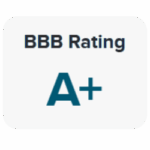
What You Need to Know About Exiting a Deeded Timeshare
How to get out of a deeded timeshare is a pressing issue for many. If you’re looking for quick answers, here are your primary options:
- Hire a professional timeshare exit company like Lonestar Transfer.
- Sell your timeshare on the resale market.
- Default on your timeshare payments as a last resort (beware of consequences).
Owning a deeded timeshare can feel like a never-ending financial burden. The annual maintenance fees, which often increase over time, can be a significant strain. Add to this the complexities and restrictions of timeshare contracts, and it’s no wonder you want out. But what’s the best way forward?
In this guide, we’ll explore the various legal and practical options for freeing yourself from a deeded timeshare. Whether it’s through selling your share, hiring a timeshare exit company, or considering other routes, we’ll help you understand what steps to take.
I’m Tyler Wren, co-founder of Lonestar Transfer, and I’ve spent over 15 years helping people just like you exit their timeshare contracts. My team and I have successfully facilitated the exit of over 20,000 clients, specializing in legally complex timeshare agreements.

How to get out of a deeded timeshare terms to know:
Understanding the Rescission Period
How to Use the Rescission Period
If you’ve just purchased a timeshare and are already having second thoughts, the rescission period is your best friend. This is a short window of time where you can cancel your timeshare contract without any penalties. But how do you take advantage of it? Let’s break it down.
Cool-Down Period
The rescission period, also known as the cool-down period, varies by state. It can be as short as three days in Kansas and Ohio or as long as 15 days in Alaska. During this time, you have the legal right to cancel your timeshare contract.
Rescission Laws
Rescission laws are based on where your timeshare is located, not where you live. Make sure to look up the specific laws for the state of your timeshare. For example, Florida offers a 10-day rescission period, while California provides seven days.
State-Specific Rules
Different states have different rules about when the rescission period starts. It could begin on the day you sign the contract, or it might start when you receive the public offering statement. This statement includes all the details about the timeshare, and it’s crucial for understanding your rights.
Timeshare Cancellation Letter
To cancel your timeshare, you’ll need to write a timeshare cancellation letter. Here’s what to include:
- Names on the agreement
- Name of the timeshare developer
- Cancellation address
- Today’s date
- Purchase date
- Agreement contract number
- Original purchase price
- Your contact information
Certified Mail
Send your cancellation letter via certified mail. This provides proof that the resort received your letter, protecting you from any claims that they didn’t. Keep extra copies handy and make sure the resort signs for it.

Legal Rights
During the rescission period, you have the legal right to cancel your timeshare without any penalties. Some resorts may try to charge cancellation fees, but most states have laws that protect you from these unfair charges.
If you’re within the rescission period, act quickly. Review your contract, write your cancellation letter, and send it via certified mail to the correct address. This is your best chance to exit your timeshare without any financial repercussions.
Next, let’s explore other ways to get out of a deeded timeshare if you’ve missed the rescission period.
Selling Your Timeshare
If you’ve missed the rescission period and are looking to get out of your deeded timeshare, selling it might be your next best option. Your timeshare needs to be paid off and you will not sell it for what you put in to it, so be prepared to take a loss. Here’s a step-by-step guide to help you through the process.
Preparing to Sell
Before you list your timeshare for sale, there are a few preparations you need to make:
1. Loan Status:
Ensure that your timeshare is not encumbered by any outstanding loans. Buyers are more likely to purchase a timeshare that is free and clear of debt.
2. Property Value:
Understand that timeshares usually depreciate in value. Research similar timeshares on resale sites like eBay, Craigslist, and timeshare-specific platforms to get a sense of the current market. Don’t expect to sell it for the original purchase price.
3. Gather Important Documents:
Collect all relevant documents, including your deed, maintenance fee statements, and property tax bills. Having these organized will streamline the selling process.
Listing Your Timeshare
Once you’re prepared, it’s time to list your timeshare. Here’s how to do it effectively:
1. Choose a Listing Strategy:
Decide how you want to list your timeshare. You can either do it yourself or hire a timeshare resale company. If you opt for a resale company, ensure they are reputable and don’t charge upfront fees.
2. Select Online Marketplaces:
There are several online platforms where you can list your timeshare. Websites like RedWeek and Timeshare Users Group can be effective for reaching a broad audience of buyers. You can also try listing your property on eBay or Craigslist.
3. Create an Attractive Listing:
Your listing should be detailed and attractive. Include high-quality photos, a thorough description of the property, and any amenities. Highlight the benefits of owning your timeshare, such as prime location or exclusive facilities.
4. Set a Competitive Price:
Timeshares do not hold any value like traditional real estate, they typically decrease in value. You may take a large loss on the property depending on your situation.
5. Avoid Upfront Fees:
Be wary of companies that ask for upfront fees. Instead, look for platforms and services that charge a commission or fee only after the sale is completed.
6. Use Owner Directories:
Many timeshare owners join directories or forums. These communities can be a valuable resource for connecting with potential buyers who are specifically looking for timeshares.
7. Prepare for Closing Costs:
Be aware that selling a timeshare involves closing costs. These can include transfer fees, recording fees, and possibly other charges. Make sure to factor these into your overall selling strategy.
Case Study:
Many timeshare owners have successfully sold their timeshares using these steps. For instance, one owner managed to offload their timeshare by listing it for free on the Timeshare Users Group’s Bargain Deals forum, saving thousands in future maintenance fees.
By following these steps, you can increase your chances of successfully selling your timeshare and freeing yourself from the ongoing financial burden.
Next, let’s discuss the benefits of hiring a professional to help you exit your timeshare.
Hiring a Professional
Why Choose a Timeshare Exit Company
Navigating the complexities of getting out of a deeded timeshare can be daunting. While selling your timeshare is one route, hiring a professional timeshare exit company can offer a more streamlined and stress-free solution. Here’s why:
1. Expertise in Contract Law:
Timeshare agreements are notoriously difficult to understand and even harder to break. A contract law attorney can help, but they often lack the specialized knowledge that timeshare exit companies possess. These companies are well-versed in the nuances of timeshare contracts and can provide custom solutions to your specific situation.
2. Proven Experience:
Reputable timeshare exit companies have years of experience helping people exit their timeshares. They know the ins and outs of the industry and have established relationships with many timeshare companies. This experience translates to a higher success rate in helping clients successfully exit their contracts.
3. High Success Rate:
The success rate of timeshare exit companies is often higher than going it alone or hiring a general attorney. These companies have refined their strategies over time to ensure the best possible outcomes for their clients. For example, many have a track record of helping thousands of owners successfully exit their timeshares.
4. Cost Considerations:
While hiring a professional timeshare exit company involves a fee, it can be more cost-effective in the long run. Attempting to exit your timeshare on your own can result in costly mistakes, like falling for scams or paying unnecessary fees. A reputable timeshare exit company will provide a clear, transparent fee structure with no hidden costs.
5. Legal Assistance:
Timeshare exit companies often work with legal professionals who specialize in timeshare law. This means you get the benefit of legal expertise without the high hourly rates that attorneys typically charge. They can help steer any legal problems that arise during the exit process.
6. Emotional Support:
Dealing with timeshare companies can be stressful and emotionally draining. A professional timeshare exit company takes on this burden for you, allowing you to focus on other important aspects of your life. They handle all communications and negotiations, providing peace of mind throughout the process.
7. Custom Strategies:
Every timeshare situation is unique, and a one-size-fits-all approach rarely works. Timeshare exit companies offer customized strategies based on your specific circumstances. Whether your timeshare is paid off or you’re still making payments, they will tailor their approach to ensure the best possible outcome.
8. Avoiding Scams:
The timeshare exit industry is unfortunately rife with scams. Unscrupulous companies use misleading information and scare tactics to exploit desperate timeshare owners. Reputable timeshare exit companies are transparent, have good reviews, and are accredited by organizations like the Better Business Bureau.
By choosing a professional timeshare exit company, you can avoid pitfalls and ensure a smoother, more efficient exit from your timeshare. This route not only saves you time and stress but also provides a clear path to financial freedom.
Next, let’s explore the consequences and risks involved if you choose to default on your timeshare payments.
Defaulting on Payments
If you’re considering how to get out of a deeded timeshare by defaulting on payments, it’s crucial to understand the repercussions. Defaulting can have serious financial and legal consequences.
Penalties
When you stop paying your timeshare loan or maintenance fees, you’ll face penalties. These can include late fees and interest, which will increase your total debt over time. The longer you delay payments, the more you’ll owe.
Credit Score Impact
Defaulting on your payments will negatively affect your credit score. Timeshare companies report missed payments to credit bureaus, leading to a significant drop in your credit score.
Multiple missed payments can stay on your credit report for up to seven years, making it difficult to get loans, credit cards, or even rent an apartment.

Foreclosure Risks
Continuing to default on payments can lead to foreclosure. Timeshare companies may initiate foreclosure proceedings to repossess the property and recover their losses. Foreclosure can be judicial or non-judicial, depending on your state’s laws.
- Judicial Foreclosure: This involves a court process, which can be lengthy and costly. You may also be liable for legal fees.
- Non-Judicial Foreclosure: This process is quicker but still results in a significant negative impact on your credit score.
Legal Consequences
In addition to foreclosure, timeshare companies can sue you for unpaid fees. Legal action can result in wage garnishment or liens on your other properties.
“At some point, they wrote me saying that my case was transferred to a law firm. Then silence for about two months, and the phone calls started again.”
Collection Agencies
If you continue to miss payments, your account will likely be turned over to a collection agency. This can lead to relentless calls and letters demanding payment, adding stress to an already difficult situation.
“We have been called by collection agencies a minimum of twice a day, every day for a full year,” one user explained.

Surrendering the Property
In some cases, timeshare companies may accept the surrender of the property rather than pursuing legal action. However, this is not guaranteed and depends on the company’s policies.
Next, let’s address some frequently asked questions about how to get out of a deeded timeshare.
Frequently Asked Questions about How to Get Out of a Deeded Timeshare
What is the rescission period for timeshares?
The rescission period is a short window of time when you can cancel your timeshare purchase without any penalties. This period varies by state and can range from three to 15 days. For example, Florida allows a 10-day rescission period, while Alaska offers up to 15 days.
To cancel within this period, you need to send a cancellation letter to the resort. Make sure to include:
- Names on the agreement
- The name of the timeshare developer
- Cancellation address of the resort
- Purchase date and agreement number
- A statement declaring your cancellation
- Your contact information
Mail this letter using certified mail to ensure it is received on time.
Can I sell my timeshare if I still owe money on it?
Selling a timeshare with an outstanding loan can be challenging. If your timeshare is still under a loan, it will be listed as “encumbered.” This means you cannot proceed with the sale until the loan is paid off.
If your timeshare is eligible for sale, here are some steps to follow:
- Determine its value: Check online resale sites or general listing platforms like eBay and Craigslist.
- Prepare to list: Ensure you have all necessary documents and understand any fees associated with the sale.
- Choose a platform: Opt for websites that don’t charge upfront fees to avoid scams.
What are the risks of defaulting on timeshare payments?
Defaulting on your timeshare payments can have serious consequences:
- Penalties: You’ll incur late fees and interest, increasing your debt.
- Credit Score Impact: Missed payments will be reported to credit bureaus, causing your credit score to drop significantly.
- Foreclosure: Continued default can lead to foreclosure, either judicial or non-judicial, depending on your state’s laws.
- Legal Consequences: Timeshare companies can sue for unpaid fees, potentially leading to wage garnishment or liens on other properties.
- Collection Agencies: Your account may be handed over to collection agencies, resulting in relentless calls and letters.
One user shared their experience with collections:
“We have been called by collection agencies a minimum of twice a day, every day for a full year,”
Understanding these risks can help you make an informed decision about how to get out of a deeded timeshare.
Next, we’ll explore the role of professional assistance in exiting a timeshare.
Conclusion
Navigating the complexities of exiting a deeded timeshare can be daunting. However, with the right guidance, you can reclaim your financial freedom. This is where Lonestar Transfer comes into play.
Lonestar Transfer is a trusted name in the timeshare exit industry. With over 25,000 successful exits, we have a proven track record of helping clients escape their timeshare burdens. Our team is committed to providing transparent and effective solutions custom to your unique situation.
One of the standout features of our service is our 100% money-back guarantee. We are so confident in our ability to help you that if we can’t get you out of your timeshare, we will refund your money. This guarantee underscores our commitment to your satisfaction and peace of mind.
By choosing Lonestar Transfer, you are opting for a stress-free, reliable, and legally sound way to exit your timeshare contract. Our experienced team will handle all the paperwork and legalities, ensuring a smooth and efficient transfer process.
If you’re ready to take the first step towards resolving your timeshare burden, visit our Timeshare Exit Strategy page for more information and a free consultation.
Don’t let your timeshare control your financial future. Reach out to Lonestar Transfer today and find how easy it can be to get out of a deeded timeshare.









